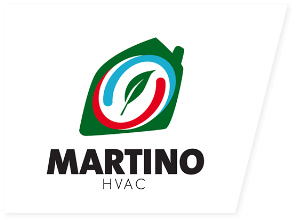Which Type of Thermostat Should I Have in My Home?
Home thermostats can range from simple manual units to sophisticated programmable units. This guide will help you understand the different types of thermostats, what you should know when selecting your thermostat, and the special features that increase convenience, comfort and energy efficiency.
Manual, Programmable & Smart Thermostats
Thermostats are designed as manual, programmable or smart. All three work with air conditioning and a variety of gas, oil and electric furnaces.
Manual Thermostats
- Typically found in older homes
- Economical with simple controls
- Limited energy savings and comfort, but can work efficiently if you’re diligent about changing settings as the temperature changes
Programmable Thermostats
- Adjust the temperature automatically throughout the day
- Save you as much as 33 percent on heating costs, and up to 15 percent to 25 percent on cooling
- Advanced models can switch back and forth between heating and air conditioning during seasonal transitions
- Easy-to-operate digital interface, with many mercury-free newer models
- Can be set to 7-day (daily individual programs), 5-2 day (work week vs. weekend programs), 5-1-1 (work week plus two different programs for Saturday and Sunday), 1-week (same week-long program)
Tip: You can manually override the program’s schedule as needed with many programmable thermostats.
Smart/Wifi Thermostats
- Improve energy efficiency
- Allow you to control the temperature from your computer, tablet or smartphone
Thermostat Compatibility
Identify if your home is fitted with 1 Stage, 2 Stage, Direct Line Voltage, 24mV, or Zone heating and cooling to determine which thermostat will be compatible.
Your new thermostat will be clearly labeled with one of the following:
- Works with 1 Stage heat or cool: For use where you have separate heating and air conditioning units
- Works with 2 Stage or multi-stage heat or cool: For heating or cooling units that have a high and low speed
- Works with Direct Line Voltage: 110 or 240 direct current power source used in some older homes to power the thermostat
- Works with 24mV: For use with a fireplace, floor, or wall furnace
- Zoned HVAC: Heating and/or cooling is individually controlled in different areas from the same HVAC system


